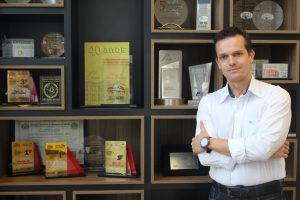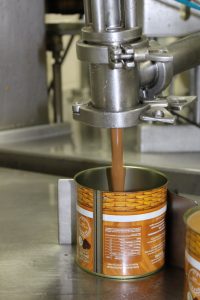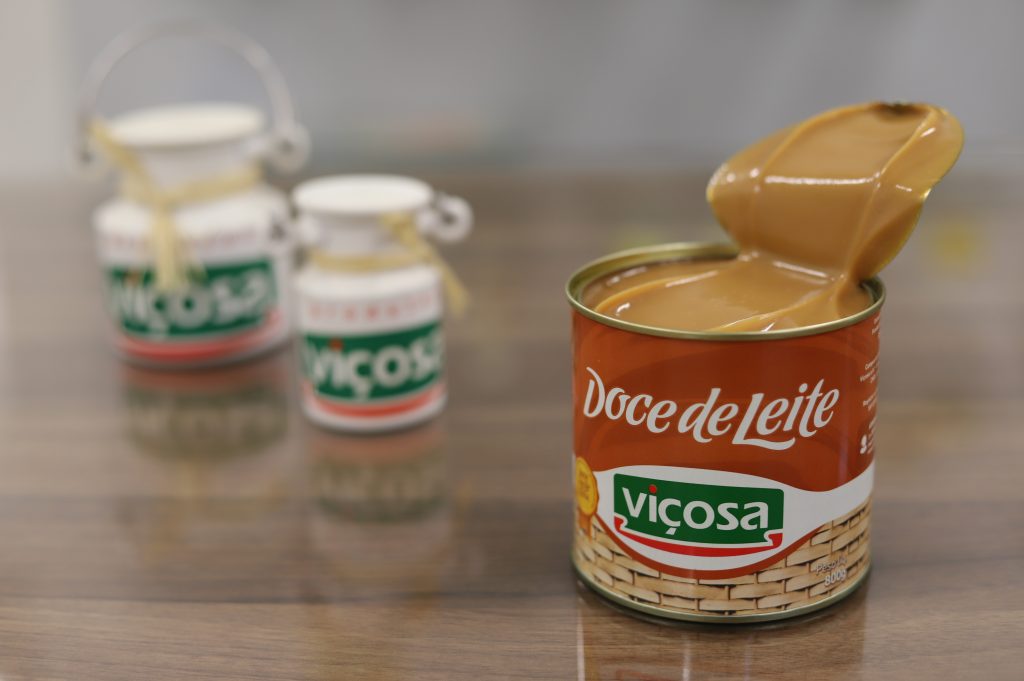São Paulo – Elected ten times as Brazil’s best dulce de leche in the National Dairy Product Contest, the product by Laticínio Escola Viçosa could break into the foreign market. The Doce de Leite Viçosa export project is its first stage of feasibility studies, but Laticínio Escola general manager Aristides Dias told ANBA that there is a large demand from foreign retailers.
The dulce de leche production represents now 55-60% of the company’s output, and year to date through August it accounted for 60% of its revenue. “Right now, we are adapting production to meet the FSSC 22000, a norm that consists of an international food safety certification, which will make the whole export process easier,” Dias explained.

The company maintain direct contact with the farmers to uphold the large-scale quality. “In this wide dairy world, having a good relationship with the farmers is fundamental. We have employees that are focused on meeting the current legislations and constant guidance on the continuous improvement with the farmers,” the manager said.
These relations make processes like traceability possible. “In addition to help guaranteeing the food quality, it benefits the farmer and is key to guarantee the product origin and quality,” Dias added.
The history of the company goes hand in hand with education. Founded in 1971 by Danish professor Beck Anderson, Usina Piloto de Laticínios was created as a support lab for dairy classes at the Department of Food Technology of the Federal University of Viçosa (UFV). In fact, the dulce de leche was created for the consumption of the university’s students with technology developed by the department.

At first, the raw materials were obtained exclusively at the university’s farm, the products were handmade then, and besides the students, only clients at the cafeteria had tried the treat. With the great acceptance of the first products obtained in the classes – milk, cheese and requeijão – and the surplus production, the company started selling them to the population in the city of Viçosa.
As the demand increased, an administrative and industrial structure was needed to organize the entire production process, input purchase, and sales. Even now, the facilities also serve as an education, research, extension and innovation lab of the university. Every year, the school receives around 1,500 students with practical lessons, internships, and academic work, as well as serving 50 education institutions from across Brazil and having 40 internships for students from several academic fields.
To keep conquering markets, the company is constantly creating new products. A newly launched product is the Viçosa dulce de leche with coffee, which, Dias said, has been well received by the public and been met with strong sales. “Laticínio Escola became a standard in Brazil and elsewhere, proving that it is possible to associate knowledge and industrial production with the proper application of resources in order to generate more revenue for the academy, as well as producing innovative technology and fostering the market development,” the general manager stressed.
Translated by Guilherme Miranda




